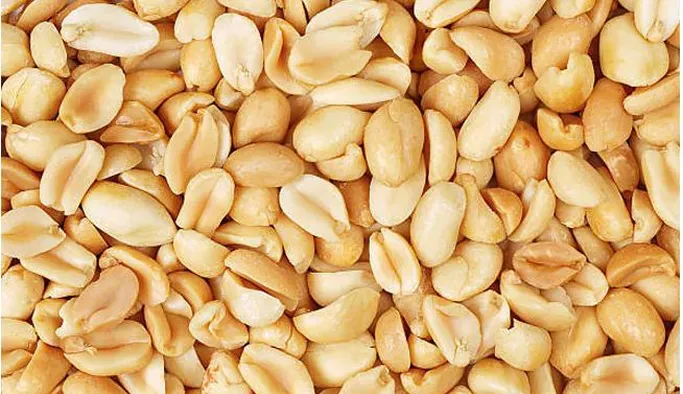I want to talk to you about something we all love to snack on but might not fully understand: nuts! Nuts are tasty, crunchy, and packed with nutrients, but have you ever wondered why they can sometimes be a bit tricky for your tummy to handle? Well, let’s dive into the world of nuts and explore why they can be hard to digest.
First of all, nuts are a powerhouse of nutrition. They’re loaded with healthy fats, fiber, vitamins, and minerals. While these nutrients are fantastic for your body, they can also make nuts a challenge to digest. Healthy fats, in particular, can slow down digestion because your stomach has to work harder to break them down.
Another thing to keep in mind is that nuts have a tough outer shell or skin. This outer layer can be quite stubborn to break apart, even for your powerful stomach acid. So, when you eat whole nuts, your digestive system has to put in extra effort to crack that nutty code and extract all the goodness inside.
Now, let’s talk about fiber. Nuts are rich in fiber, which is excellent for your overall health. Fiber helps keep your digestive system regular and supports heart health. However, too much fiber can sometimes lead to digestive discomfort. Some nuts, like almonds and cashews, are particularly high in fiber, and consuming them in excess can cause bloating, gas, and even diarrhea in some individuals.
Phytic acid is another factor that can make nuts a bit tricky to digest. This compound is found in many nuts and seeds and acts as a natural defense mechanism for the plant. Phytic acid can bind to essential minerals like calcium, magnesium, and zinc, making them less available for your body to absorb. So, while nuts are nutrient-dense, phytic acid can reduce their nutritional value.
Have you ever noticed that nuts often taste better when they’re roasted or toasted? Well, there’s a reason for that! Roasting nuts can actually make them easier to digest. The heat breaks down some of the compounds that can cause digestive discomfort, such as phytic acid. So, if you have a sensitive stomach, lightly roasting your nuts might be a good idea.
It’s also worth mentioning that some people may have allergies to nuts, which can make digestion even more challenging. Nut allergies can range from mild to severe, and if you have one, consuming nuts can lead to serious health problems. If you suspect you have a nut allergy, it’s essential to seek medical advice and avoid nuts altogether.
In conclusion, while nuts are a fantastic addition to a healthy diet, they can be a bit tough to digest due to their high fiber, healthy fats, tough outer shells, and phytic acid content. However, this doesn’t mean you should give up on nuts altogether. Instead, consider roasting them, eating them in moderation, and if you have digestive issues or allergies, consult with a healthcare professional for personalized advice.
Could a keto diet rich in fats lead to digestive troubles for me?
Now you might be wondering, “Will I face digestive problems from a high-fat diet in the keto diet?“.
First things first, the keto diet is all about eating foods that are high in fats, moderate in protein, and very low in carbohydrates. It’s been shown to help people lose weight and manage conditions like epilepsy and diabetes. But when it comes to your tummy, there are a few things you should know.
One of the most common digestive issues people encounter when starting the keto diet is something we affectionately call “keto constipation.” Since the diet is low in carbs and fiber, you might find yourself feeling a bit blocked up. Fiber is like a broom for your intestines, helping things move smoothly. On keto, it’s important to make sure you’re getting enough fiber from sources like leafy greens, avocados, and nuts to keep things flowing.
Now, let’s talk about the fat. Yes, you’re eating a lot of it on keto, and some folks worry this might lead to digestive troubles. But here’s the thing – good fats are your friends. Healthy fats like those found in avocados, olive oil, and fatty fish can actually be kind to your digestive system. They help your body absorb essential vitamins and keep everything running smoothly.
However, if you suddenly jump into a high-fat diet without giving your body time to adjust, you might experience something we’ll call “keto tummy trouble.” Your stomach might feel a bit upset, and you could even have some diarrhea. This is your body’s way of saying, “Hey, slow down a bit!” To avoid this, ease into the keto diet gradually, giving your digestive system time to adapt to the new fat-heavy menu.
Another thing to keep in mind is hydration. When you’re on keto, your body loses more water because it’s using up stored carbohydrates. This can lead to dehydration, and dehydration can lead to digestive problems like constipation. So, be sure to drink plenty of water to keep things moving smoothly.
One more friendly tip: don’t forget about your gallbladder. Your gallbladder is like a little storage tank for bile, which helps your body digest fats. When you’re on keto and eating lots of fats, your gallbladder needs to work a bit harder. Some folks who have had gallbladder issues in the past might find that the keto diet doesn’t agree with them. If you’re one of them, it’s a good idea to talk to your friendly doctor about alternative dietary options.
Keto diet can be a fantastic way to achieve your health and weight loss goals, but it’s essential to be mindful of your digestive system along the way. Make sure to include fiber-rich foods, stay hydrated, and ease into the high-fat lifestyle. And, as is our constant advice, if you encounter persistent digestive issues, do not hesitate to contact our medical team at MedChunk. Your tummy deserves to be happy and healthy!

